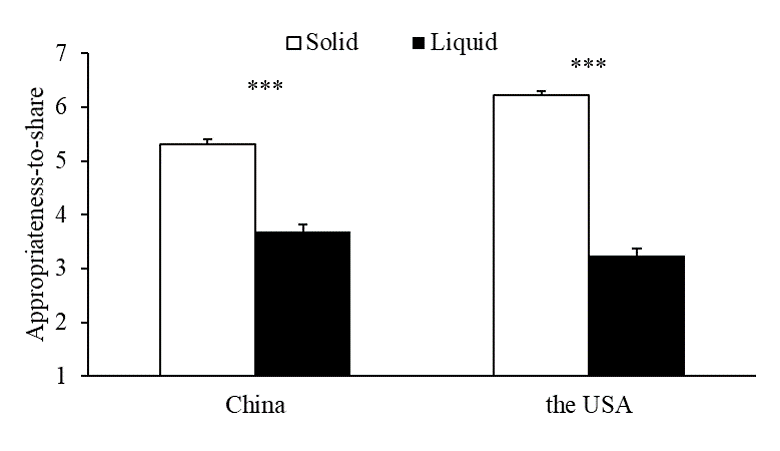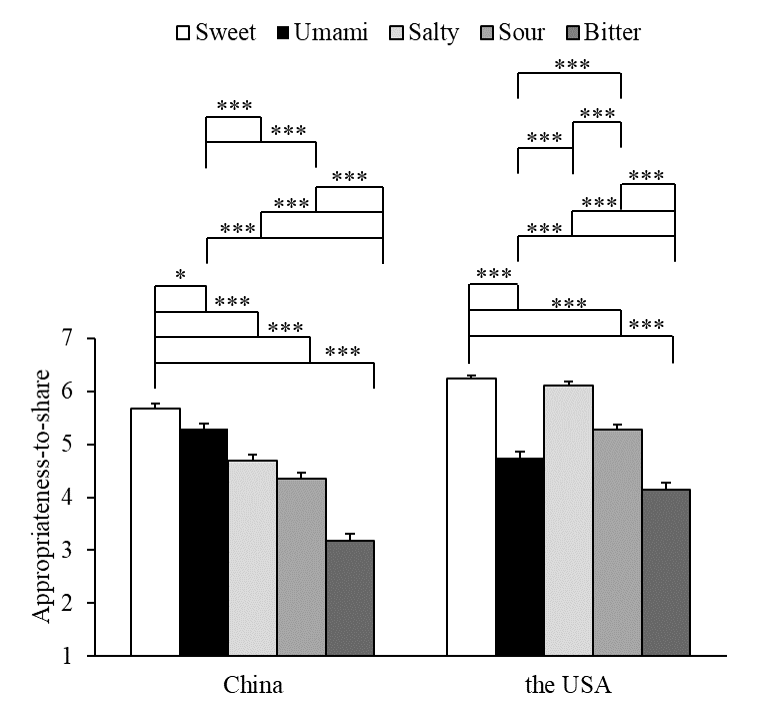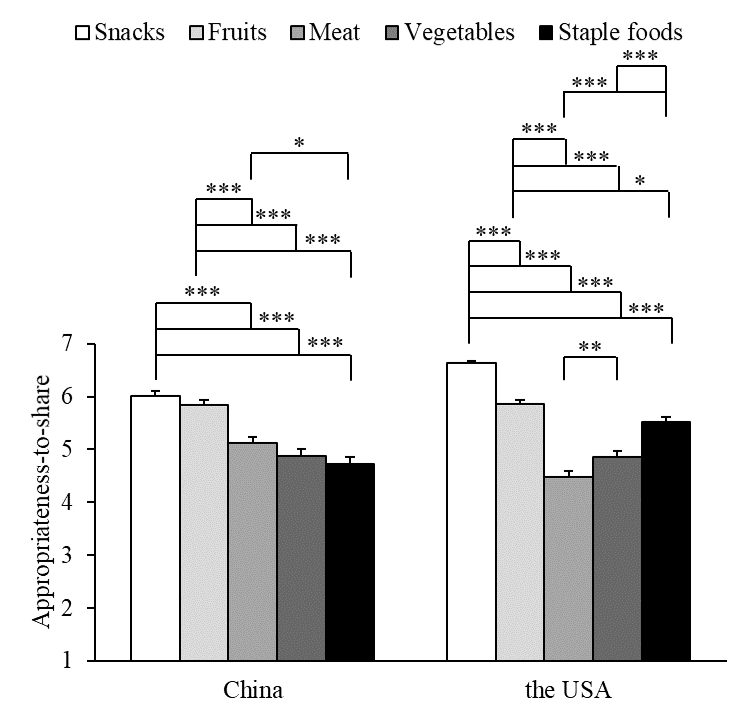作者:王楚珺 社科學(xué)院
指導(dǎo)老師:宛小昂 社科學(xué)院
Key words:Food sharing; cross-cultural comparison; appropriateness; intimacy; trust
Abstract
We conducted two cross-cultural studies on Chinese and North American participants to investigate their beliefs about food sharing. In Study 1, the participants were asked to rate the influence of sharing food, non-food material, information, or emotion on the interpersonal relationships between the sharer and the recipient of sharing. The results revealed that both Chinese and North American participants expected sharing food to exert a more positive influence on the intimacy and mutual trust between the sharer and the recipient than sharing non-food material. In Study 2, the participants were asked to rate to which extent it is appropriate to share a certain food with another person. The results revealed that the solid or liquid state, tastes, and types of foods influenced both Chinese and North American participants’ beliefs about whether a food is appropriate for sharing. Despite some cross-cultural differences we observed in both Studies 1 and 2, our results suggested some cross-cultural common beliefs about food sharing, and people’s beliefs regarding the positive influence of food sharing on interpersonal relationships may explain why sharing foods is so common when people are eating together.
Study 1
A total of 220 Chinese young adults and 220 young adults from the USA were recruited to take part in this study. They were asked to read eight scenarios which describe participants would experience sharing food, non-food material, information, or emotion as the sharers or the recipients of sharing and then rate the change of interpersonal relationships.
The results were shown in Figure 1.

Figure 1. Mean intimacy and mutual trust scores of different sharing scenarios in which the Chinese and North American participants were described as the sharers or the recipients of sharing in Study 1. Note that * denotes p < 0.05, ** denotes p < 0.01, and *** denotes p < 0.001.
Study 2
A total of 220 new Chinese participants and the 220 North American participants of Study 1 were recruited to take part in this study. The participants were asked to indicate to which extent each type of food in different states (solid or liquid), tastes (sweet, salty, sour, bitter, or umami taste), or types (staple foods, meat, vegetables, fruits, or snacks) was appropriate for sharing between individuals.
The results were shown in Figures 2, 3 and 4.

Figure 2. Mean appropriateness-to-share scores for solid and liquid foods in Study 2. Note that *** denotes p < 0.001.

Figure 3. Mean appropriateness-to-share scores for foods of different tastes in Study 2. Note that * denotes p < 0.05, and *** denotes p < 0.001.

Figure 4. Mean appropriateness-to-share scores for foods of different types in Study 2. Note that * denotes p < 0.05, ** denotes p < 0.01, and *** denotes p < 0.001.
Conclusion
First, the results of both studies revealed some cross-cultural common beliefs about food sharing. Both Chinese and North American participants believed that sharing foods can exert a positive influence on the intimacy and mutual trust between the sharer and the recipient of sharing, and both Chinese and North American participants considered sweet foods and snacks to be very appropriate for sharing with other people, whereas foods with a bitter taste are not appropriate for sharing.
Second, the results also revealed some cross-cultural differences in people’s beliefs about food sharing. For example, Chinese and North American participants differed in their beliefs about whether sharing foods can exert a more positive influence than sharing information on interpersonal relationships. Moreover, the Chinese and North American participants also differed in their beliefs about whether umami-taste food or meat is appropriate for sharing with another person.






